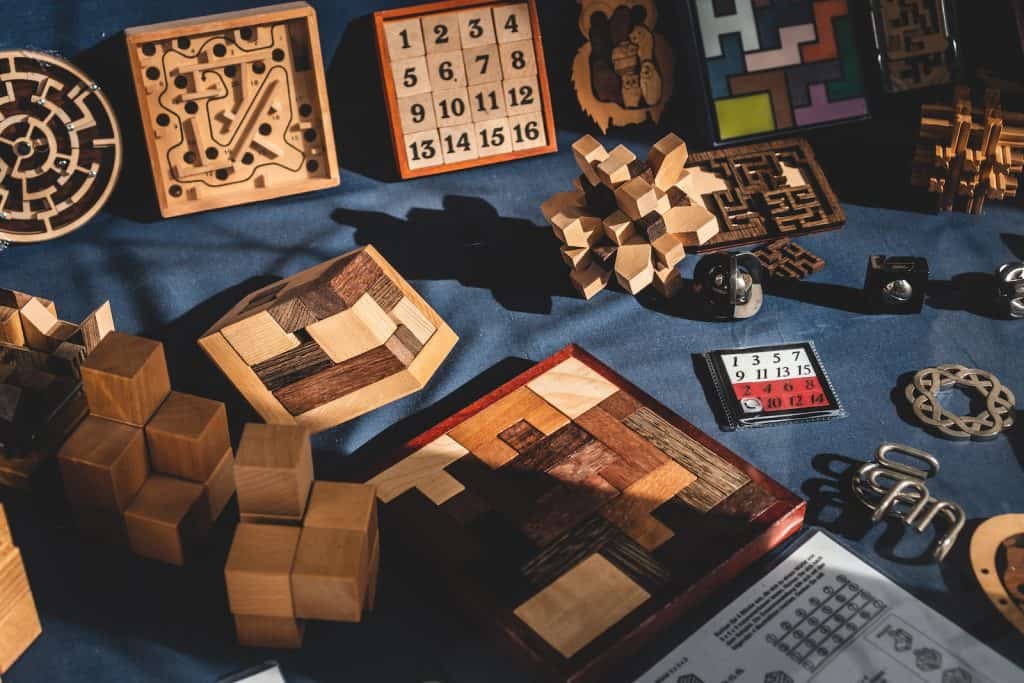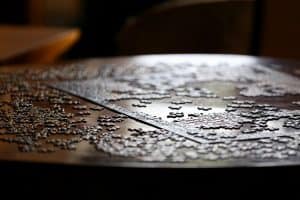ADHD and puzzles: There is a lot of debate over whether or not puzzles are good for people with ADHD. Some people believe that puzzles help to improve focus and attention, while others believe that puzzles can actually be counterproductive for people with ADHD. The truth is that there is no one-size-fits-all answer to this question, as the effects of puzzles will vary from person to person. However, there are some general tips that can be followed if you’re looking to use puzzles as a way to help improve focus and attention in people with ADHD.
What is ADHD?
ADHD stands for Attention Deficit Hyperactivity Disorder. It is a mental disorder that is characterized by problems with focus, hyperactivity, and impulsiveness. People with ADHD often have difficulty paying attention, sustaining focus on tasks, and controlling impulsive behavior. As a result, people with ADHD may find it difficult to complete tasks, follow instructions, and stay organized.
The good news is that ADHD is a treatable condition. With proper diagnosis and treatment, people with ADHD can learn to manage their symptoms and lead productive, successful lives.
What are the ADHD symptoms?
There are three primary types of ADHD: inattentive type, hyperactive-impulsive type, and combined type. People with the inattentive type of ADHD generally have problems with focus and attention but do not exhibit any significant issues with hyperactivity or impulsivity. People with the hyperactive-impulsive type of ADHD generally have problems with hyperactivity and impulsivity, but do not exhibit any significant issues with focus and attention. Lastly, people with the combined type of ADHD exhibit problems with both focus and attention, as well as hyperactivity and impulsivity. ADHD patients also have higher rates of comorbid conditions, such as anxiety and depression.

There are a variety of symptoms that are associated with ADHD. Some of the more common symptoms include:
Inattention:
-Difficulty paying attention to tasks or conversations
-Easily distracted
-Forgetful
-Frequently losing things
-Difficulty completing tasks
Hyperactivity:
-Excessive fidgeting or squirming
-Excessive talking
-Running or climbing in inappropriate situations
– Difficulty remaining seated in appropriate situations
Impulsivity:
-Acting without thinking
-Blurting out answers before hearing the entire question
-Interrupting others
-Difficulty waiting for one’s turn
Not all people with ADHD will experience all of the above symptoms. The severity of symptoms will also vary from person to person. In general, however, people with ADHD tend to have difficulty sustaining focus on tasks and conversations, as well as controlling impulsive behavior.
ADHD and Puzzles: How can puzzles help people with ADHD?

Puzzles can be a helpful tool for people with ADHD for several reasons.
1. Puzzles can help to improve focus and attention.
Puzzles require sustained focus and attention in order to be completed. For people with ADHD, this can be a helpful exercise in learning to focus and pay attention. In addition, the act of completing a puzzle can help to improve attention span.
2. Puzzles can help to improve planning and organizational skills.
In order to complete a puzzle, one must first plan out the steps that need to be taken. This can be a helpful exercise for people with ADHD who often have difficulty planning and organizing tasks.
3. Puzzles can help to improve problem-solving skills.
People with ADHD often have difficulty solving problems. Solving puzzles can help to improve problem-solving skills by teaching people how to break down a problem into smaller, more manageable pieces. Cognitive skills such as pattern recognition and spatial awareness can also be improved through puzzle-solving.
4. Puzzles can help to improve fine motor skills.
Many puzzles require the use of small, precise movements in order to be completed. For people with ADHD, this can be a helpful exercise in improving fine motor skills.
5. Puzzles can help to reduce stress and anxiety.
People with ADHD often experience high levels of stress and anxiety. The act of completing a puzzle can help to reduce stress and anxiety by providing a sense of accomplishment and satisfaction.
6. Puzzles can help to improve social skills.
Puzzles can be a helpful tool for people with ADHD who often have difficulty interacting with others. Working on a puzzle with another person can help to improve communication and social skills.
7. Puzzles can help to improve memory.
People with ADHD often have difficulty remembering things. Working on puzzles can help to improve memory by providing a way to practice and reinforce memory skills. Working memory, in particular, can be improved through puzzle-solving.
Puzzles can be a helpful tool for people with ADHD, but it is important to remember that they are not a cure for ADHD. If you or someone you know has ADHD, please talk to a doctor or mental health professional about treatment options.
Different types of puzzles for ADHD patients
Puzzles are especially likely to engage the ADHD brain and help it focus.
There are many different types of puzzles that can be helpful for people with ADHD. Here are some examples:
1. Jigsaw puzzles
Jigsaw puzzles are a great option for people with ADHD. They can help to improve focus, attention, and problem-solving skills. In addition, solving jigsaw puzzles are often relaxing and satisfying to complete.
2. Crossword puzzles
Crossword puzzles are another great option for people with ADHD. They can help to improve memory, focus, and attention. In addition, they can be a fun and challenging way to spend time.
3. Sudoku puzzles
Sudoku puzzles are another great option for people with ADHD. They can help to improve focus, attention, and problem-solving skills. In addition, they are often relaxing and satisfying to complete.
4. Word search puzzles
Word search puzzles are a great option for people with ADHD. They can help to improve memory, focus, and attention. In addition, they can be a fun and challenging way to spend time.
5. Logic puzzles
Logic puzzles are a great option for people with ADHD. They can help to improve problem-solving skills, focus, and attention. In addition, they can be a fun and challenging way to spend time.
Puzzles can be a helpful tool for people with ADHD, but it is important to remember that they are not a cure for ADHD. If you or someone you know has ADHD, please talk to a doctor or mental health professional about treatment options.
Final thoughts: ADHD and puzzles
Puzzles can be a great way for people with ADHD to improve focus, attention, and problem-solving skills. However, it is important to remember that puzzles are not a cure for ADHD. If you or someone you know has ADHD, please talk to a doctor or mental health professional about treatment options.


